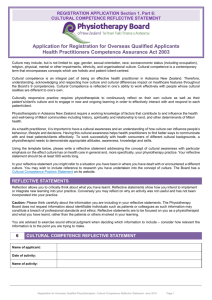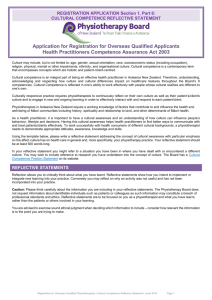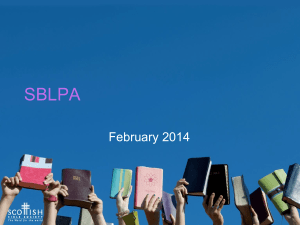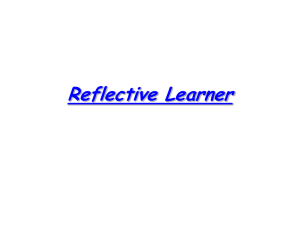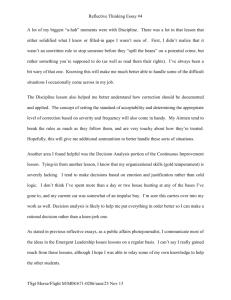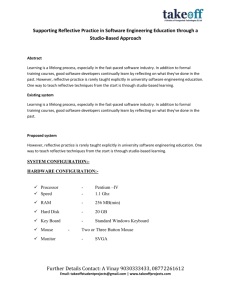6. Cultural Competence Reflective Statement April 2014
advertisement
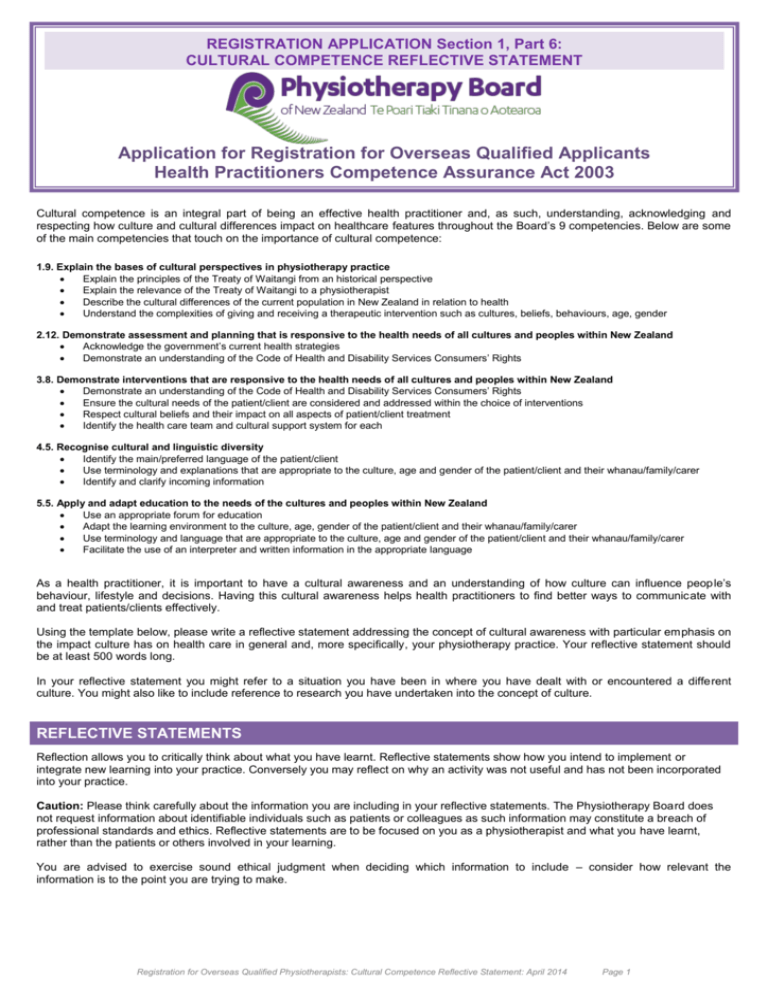
OUT THIS APPLI REGISTRATION APPLICATION Section 1, Part 6: CULTURAL COMPETENCE REFLECTIVE STATEMENT Application for Registration for Overseas Qualified Applicants Health Practitioners Competence Assurance Act 2003 Cultural competence is an integral part of being an effective health practitioner and, as such, understanding, acknowledging and respecting how culture and cultural differences impact on healthcare features throughout the Board’s 9 competencies. Below are some of the main competencies that touch on the importance of cultural competence: 1.9. Explain the bases of cultural perspectives in physiotherapy practice Explain the principles of the Treaty of Waitangi from an historical perspective Explain the relevance of the Treaty of Waitangi to a physiotherapist Describe the cultural differences of the current population in New Zealand in relation to health Understand the complexities of giving and receiving a therapeutic intervention such as cultures, beliefs, behaviours, age, gender 2.12. Demonstrate assessment and planning that is responsive to the health needs of all cultures and peoples within New Zealand Acknowledge the government’s current health strategies Demonstrate an understanding of the Code of Health and Disability Services Consumers’ Rights 3.8. Demonstrate interventions that are responsive to the health needs of all cultures and peoples within New Zealand Demonstrate an understanding of the Code of Health and Disability Services Consumers’ Rights Ensure the cultural needs of the patient/client are considered and addressed within the choice of interventions Respect cultural beliefs and their impact on all aspects of patient/client treatment Identify the health care team and cultural support system for each 4.5. Recognise cultural and linguistic diversity Identify the main/preferred language of the patient/client Use terminology and explanations that are appropriate to the culture, age and gender of the patient/client and their whanau/family/carer Identify and clarify incoming information 5.5. Apply and adapt education to the needs of the cultures and peoples within New Zealand Use an appropriate forum for education Adapt the learning environment to the culture, age, gender of the patient/client and their whanau/family/carer Use terminology and language that are appropriate to the culture, age and gender of the patient/client and their whanau/family/carer Facilitate the use of an interpreter and written information in the appropriate language As a health practitioner, it is important to have a cultural awareness and an understanding of how culture can influence people’s behaviour, lifestyle and decisions. Having this cultural awareness helps health practitioners to find better ways to communicate with and treat patients/clients effectively. Using the template below, please write a reflective statement addressing the concept of cultural awareness with particular emphasis on the impact culture has on health care in general and, more specifically, your physiotherapy practice. Your reflective statement should be at least 500 words long. In your reflective statement you might refer to a situation you have been in where you have dealt with or encountered a different culture. You might also like to include reference to research you have undertaken into the concept of culture. REFLECTIVE STATEMENTS Reflection allows you to critically think about what you have learnt. Reflective statements show how you intend to implement or integrate new learning into your practice. Conversely you may reflect on why an activity was not useful and has not been incorporated into your practice. Caution: Please think carefully about the information you are including in your reflective statements. The Physiotherapy Board does not request information about identifiable individuals such as patients or colleagues as such information may constitute a breach of professional standards and ethics. Reflective statements are to be focused on you as a physiotherapist and what you have learnt, rather than the patients or others involved in your learning. You are advised to exercise sound ethical judgment when deciding which information to include – consider how relevant the information is to the point you are trying to make. Registration for Overseas Qualified Physiotherapists: Cultural Competence Reflective Statement: April 2014 Page 1 6 CULTURAL COMPETENCE REFLECTIVE STATEMENT Name of applicant: Date of activity: Name of activity: What did you do? What did you learn? How did this activity affirm or influence your physiotherapy practice? Signature of Applicant: Date: Day/Month/Year Registration for Overseas Qualified Physiotherapists: Cultural Competence Reflective Statement: April 2014 Page 2
